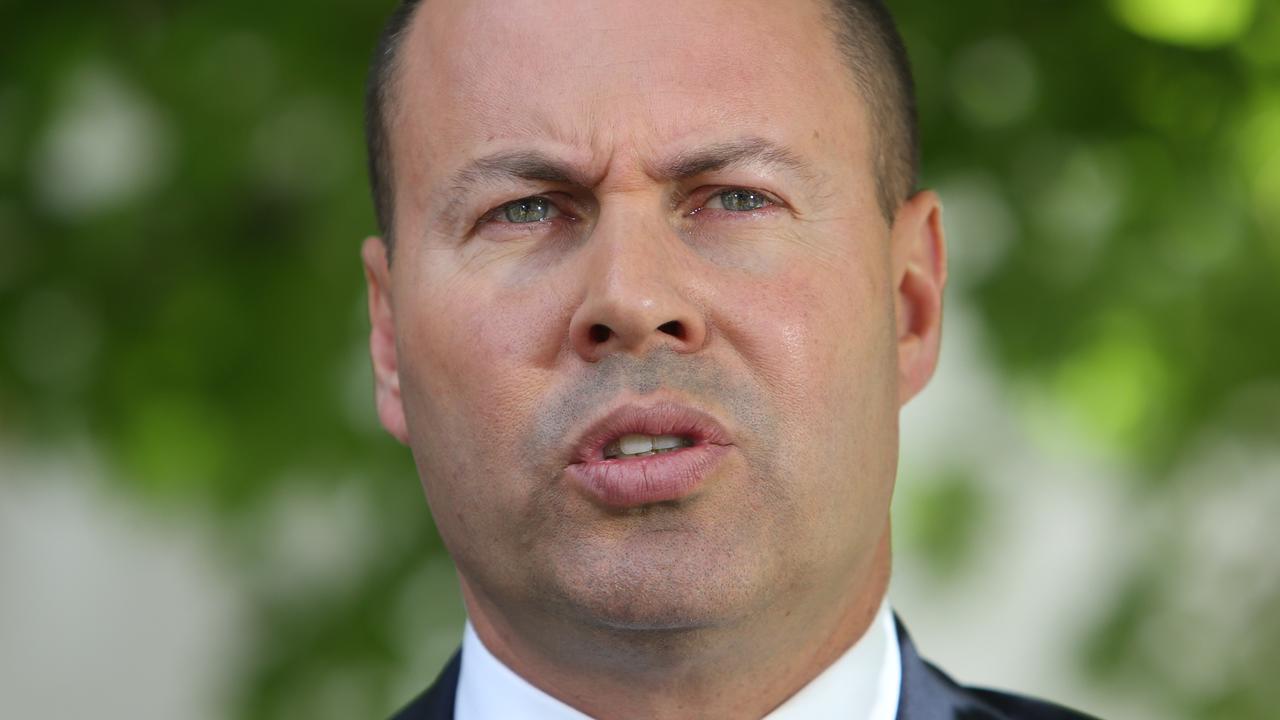Federal budget 2018: Bright four years tipped as investment, spending rally
The economy is firing on all cylinders, with business and government investment, household spending and exports rising.

The economy is firing on all cylinders in the budget forecasts, with business and government investment, household spending and exports combining to deliver another four years of sustained growth.
Treasury has taken the strong growth in employment over the past year and the buoyant business conditions revealed in surveys and rising investment as the base for its outlook, which sees economic growth lift to 2.75 per cent this year and sustaining 3 per cent growth beyond that.
The outlook for growth is in line with the 20-year average and is slightly more conservative than the forecasts made last week by the Reserve Bank.
It marks a sustained improvement from the past five years of weak growth, with the economy achieving only 2.4 per cent growth over calendar-year 2017.
“The Australian economy is benefiting from population growth, technological developments, positive business conditions and recent gains in national income following renewed strength in the terms of trade,” Treasury comments in the budget papers.
Treasury expects the record employment growth of the past year to slow, dropping from 2.75 per cent over 2017-18 to a still reasonable 1.5 per cent over the next two years.
However, the addition of 410,000 new workers over the past year has both increased the size of the personal income tax base and resulted in lower spending on welfare benefits.
Treasury has upgraded its forecasts for non-mining business investment this year from the 5 per cent increase expected in December to 10.5 per cent with strong growth continuing over the next two years.
Government investment in infrastructure is also contributing more to growth than Treasury expected while it has also upgraded its estimate for housing construction, which will rise by another 1.5 per cent over the year ahead rather than fall as earlier expected.
The most controversial element of Treasury’s outlook is its prediction that wage growth will lift from just 2.1 per cent over the year to December to 2.75 per cent over 2018-19 and to 3.25 per cent in the following year.
Treasury expects that a further fall in unemployment to 5.25 per cent will see companies prepared to pay more to hire and retain staff.
It also expects inflation to recover to 2.5 per cent by 2019-20, which is earlier than the Reserve Bank forecasts. Treasury was encouraged by a lift in household spending in the December quarter and forecasts that consumption growth will average 3 per cent over the next two years.
This implies that households will continue to lift spending faster than their earnings, and will run down the amount they are saving.
Treasury acknowledges that there are risks to this outlook.
“A change in households’ attitudes towards saving, combined with subdued income growth, may result in slower consumption growth than forecast,” it says.
It also comments that one of the consequences of the banking royal commission may be that it becomes harder for consumers to raise debt, which could also reduce consumption, although it says it is too early to assess the likelihood of this.
Treasury comments that there have been doubts about the strength of household spending for years but it has “shown resilience”.
Treasury has taken a conservative view of the outlook for commodity prices, which have been the biggest source of error in Treasury forecasts since the early 2000s.
It expects the iron ore price to remain at about $US55 a tonne (excluding freight), which is below the current level of $US67, while it predicts metallurgical coal prices will fall sharply over the next six months to $US120 a tonne.
The budget is banking only $3.7bn of revenue gains from improved mining tax profitability over the next four years, while total company tax revenue is forecast to increase by an average of a modest 4.9 per cent a year over the next four years.





To join the conversation, please log in. Don't have an account? Register
Join the conversation, you are commenting as Logout